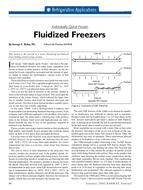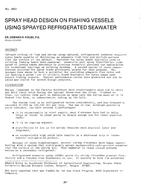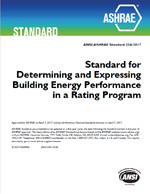A transient finite-element model of the heat transfer around a vertical U-tube heat exchanger for a ground-coupled heat pump was developed to study the thermal interference that occurs between the adjacent legs of the U-tube. Parametric studies examined performance on two-dimensional horizontal cross-sections as a function of soil properties (temperature, thermal conductivity, and diffusivity), separation distance of the legs, diameter of the tubes, and imposed wall surface temperatures. Thermal interference was quantified by defining a heat exchanger effectiveness. This value was the ratio of the heat transfer from the two legs of the U-tube in the heat exchanger to the heat transfer from the two legs if they were each in an infinite medium. The impacts of separation distance, leg temperatures, different ambient soil temperatures, and backfills were all investigated. The effectiveness had to be modified to account properly for backfills. Results with different source and ambient temperatures were nondimensionalised into a single plot. Effectiveness results were most sensitive to separation distance and backfill thermal conductivity.
KEYWORDS: year 1996, heat pumps, soil, soil heat exchangers, heat flow, thermal conductivity, heat transfer coefficient, performance, calculating, heat exchangers
Citation: ASHRAE Trans. 1996, Vol.102, Part 2, Paper number 3980, 12-21, 12 figs., 3 tabs., refs.
Product Details
- Published:
- 1996
- File Size:
- 1 file , 1000 KB
- Product Code(s):
- D-16344


